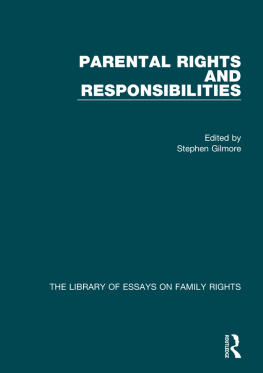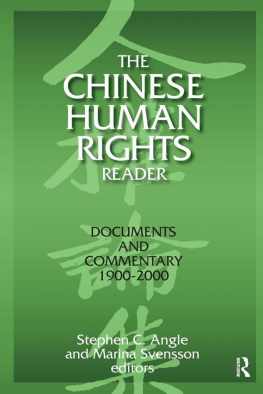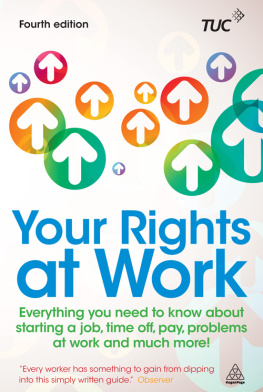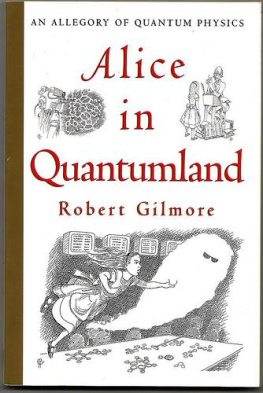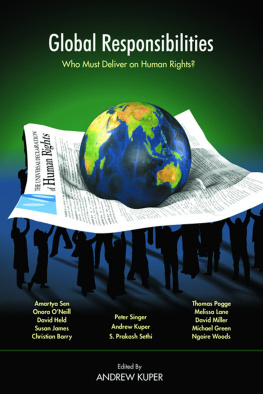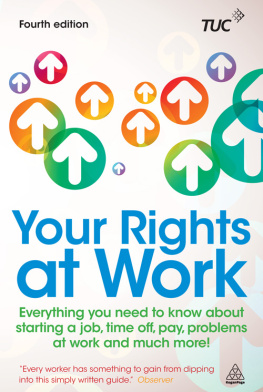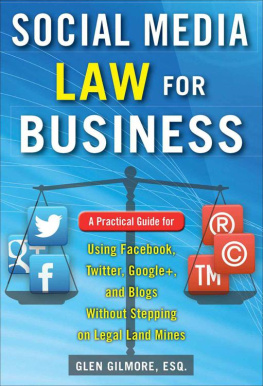First published 2017
by Routledge
2 Park Square, Milton Park, Abingdon, Oxon OX14 4RN
and by Routledge
711 Third Avenue, New York, NY 10017
Routledge is an imprint of the Taylor & Francis Group, an informa business
Editorial material and selection 2017 Stephen Gilmore; individual owners retain copyright in their own material
All rights reserved. No part of this book may be reprinted or reproduced or utilised in any form or by any electronic, mechanical, or other means, now known or hereafter invented, including photocopying and recording, or in any information storage or retrieval system, without permission in writing from the publishers.
Trademark notice : Product or corporate names may be trademarks or registered trademarks, and are used only for identification and explanation without intent to infringe.
British Library Cataloguing in Publication Data
A catalogue record for this book is available from the British Library
Library of Congress Cataloging in Publication Data
A catalog record for this book has been requested
ISBN: 978-1-4744-6337-1
Series ISBN: 1430
Typeset in Times New Roman MT
by Servis Filmsetting Ltd, Stockport, Cheshire
Publisher's Note
References within each chapter are as they appear in the original complete work
The Publishers would like to thank the following for permission to reprint their material:
The University of Pittsburgh for permission to reprint Barbara Hall, The Origin of Parental Rights (1999) 13(1) Public Affairs Quarterly 7378.
New York University Law Review for permission to reprint John Lawrence Hill, What does It Mean to Be a Parent? The Claims of Biology as the Basis for Parental Rights (1991) 66(2), New York University Law Review 353420.
John Wiley & Sons for permission to reprint Gillian Douglas, The Intention to be a Parent and the Making of Mothers (1994) 57(4) The Modern Law Review 636641.
John Wiley & Sons for permission to reprint Tim Bayne and Avery Kolers, Toward a Pluralistic Account of Parenthood (2003) 17(3) Bioethics 221242.
John Wiley & Sons for permission to reprint Jeffrey Blustein, Procreation and Parental Responsibility (1997) 28(2) Journal of Social Philosophy 7986.
James G. Dwyer for permission to reprint James G. Dwyer The Moral Basis of Childrens Relational Rights, ch 4.4 in John Eekelaar and Rob George (eds), Routledge Handbook of Family Law and Policy (Abingdon: Routledge, 2014), pp. 274280.
Jordan Publishing Ltd for permission to reprint Nigel V. Lowe, The Changing Face of Adoption the Gift/Donation Model versus the Contract/Services Model (1997) 9(4) Child and Family Law Quarterly 371386.
Craig Lind and Tom Hewitt for permission to reprint Craig Lind and Tom Hewitt, Law and the Complexities of Parenting: Parental Status and Parental Function (2009) 31(4) Journal of Social Welfare and Family Law 391406.
Bloomsbury for permission to reprint Emily Jackson, What is a Parent?, ch 4 in A. Diduck and K. ODonovan (eds), Feminist Perspectives on Family Law (London: Routledge-Cavendish, 2006), pp. 5974.
Cambridge University Press for permission to reprint Andrew Bainham, Arguments about Parentage (2008) 67(2) Cambridge Law Journal 322351.
John Wiley & Sons for permission to reprint Leanne Smith, Tangling the Web of Legal Parenthood: Legal Responses to the Use of Known Donors in Lesbian Parenting Arrangements (2013) 33(3) Legal Studies 355381.
Kirsty Horsey for the permission to reprint Kirsty Horsey, Challenging Presumptions: Legal Parenthood and Surrogacy Arrangements (2010) 22(4) Child and Family Law Quarterly 449474.
Philosophy Documentation Center (University of Florda) for their permission to Phillip Montague, The Myth of Parental Rights (2000) 26(1) Social Theory and Practice 4768.
SAGE Publications for permission to reprint Colin M. Macleod, Conceptions of Parental Autonomy (1997) 25(1) Politics and Society 117140.
Hart Publishing for their permission to reprint Andrew Bainham, Is Anything Now Left of Parental Rights?, ch 2 in R. Probert, S. Gilmore and J. Herring (eds), Responsible Parents and Parental Responsibility (Oxford: Hart, 2009), pp. 2342.
Hart Publishing for their permission to reprint Jonathan Herring, The Welfare and the Rights of Parents, ch 5 in A. Bainham, S. Day Sclater and M. Richards (eds), What is a Parent? (Oxford: Hart, 1999), pp. 89105.
Oxford University Press for permission to reprint Shazia Choudhry and Helen Fenwick, Taking the Rights of Parents and Children Seriously: Confronting the Welfare Principle under the Human Rights Act (2005) 25(3) Oxford Journal of Legal Studies 453492. This study was funded by a grant from the Nuffield Foundation.
Oxford University Press for permission to reprint Nigel V. Lowe, The Meaning and Allocation of Parental Responsibility a Common Lawyers Perspective (1997) 11(2) International Journal of Law, Policy and the Family 192215.
Hart Publishing for their permission to reprint Helen Reece, The Degradation Parental Responsibility, ch 5 in R. Probert, S. Gilmore and J. Herring (eds), Responsible Parents and Parental Responsibility (Oxford: Hart, 2009), pp. 85-102.
Oxford University Press for permission to reprint Belinda Fehlberg, Bruce Smyth, Mavis Maclean and Ceridwen Roberts, Legislating for Shared Time Parenting after Separation: A Research Review (2011) 25(3) International Journal of Law, Policy and the Family 318337.
Hugh LaFollette for permission to reprint Hugh LaFollette, 2010, Licensing Parents Revisited (2010) 27(4) Journal of Applied Philosophy 327343.
John Wiley & Sons for permission to reprint David Archard, Child Abuse: Parental Rights and the Interests of the Child (1990) 7(2) Journal of Applied Philosophy 183194.
John Wiley & Sons for permission to reprint Sonia Harris-Short, Making and Breaking Family Life: Adoption, the State, and Human Rights (2008) 35(1) Journal of Law and Society 2851.
Disclaimer
The publishers have made every effort to contact authors/copyright holders of works reprinted in Parental Rights and Responsibilities (The Library of Essays on Family Rights). This has not been possible in every case, however, and we would welcome corre spondence from those individuals/companies whom we have been unable to trace.


